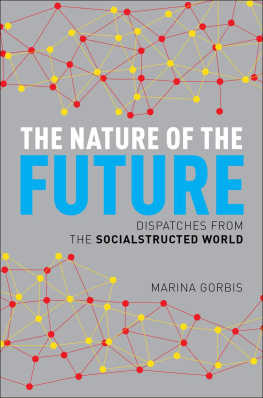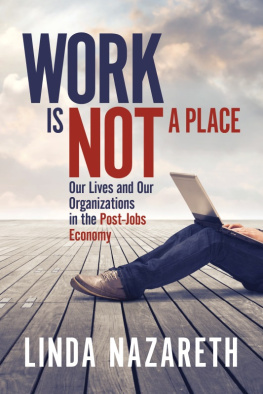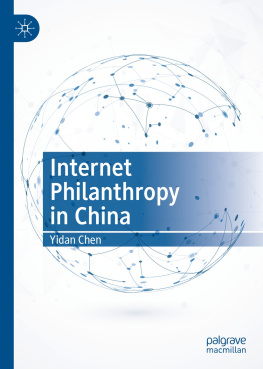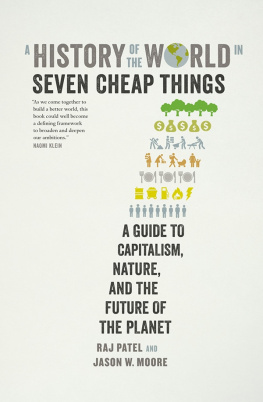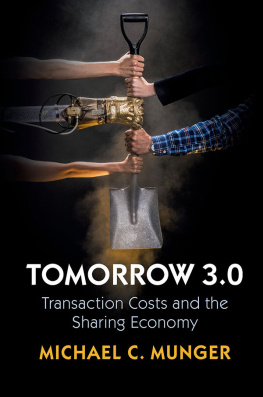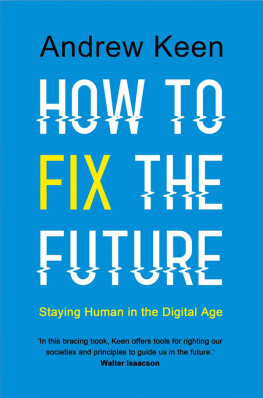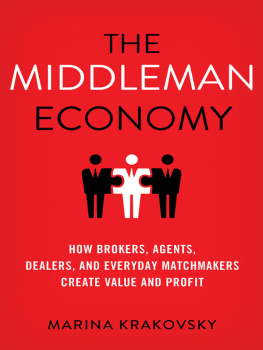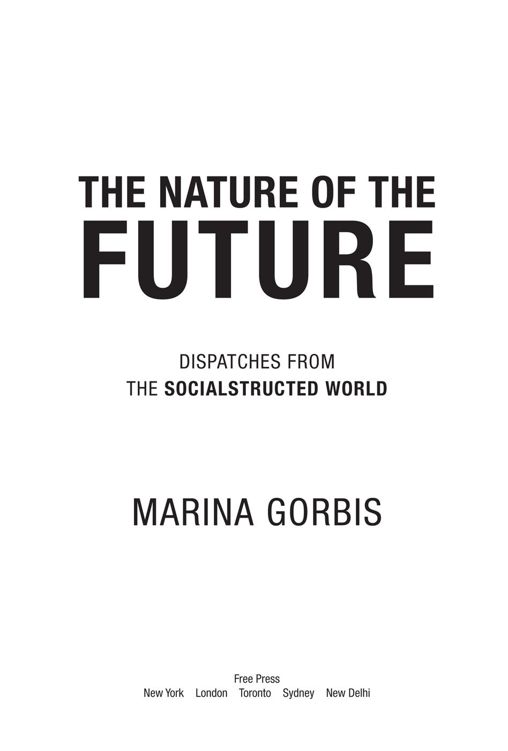Thank you for downloading this Free Press eBook.
Join our mailing list and get updates on new releases, deals, bonus content and other great books from Free Press and Simon & Schuster.
C LICK H ERE T O S IGN U P
or visit us online to sign up at
eBookNews.SimonandSchuster.com
Contents
To my mother, whose light continues to shine
To Greg, whose restless search for meaning is an inspiration
To Chris, my best friend and partner in this dance
Putting the Social Back into Our Economy
M y mother never heard the term social capital, but she knew its value well. In the Soviet Union, where she lived and where I grew up, no one could survive without it, and she leveraged her social capital on a daily basis. It enabled her to provide a decent life for her family, even though she was a widow without much money, excluded from the privileged class of the Communist Party. We never worried about having enough food. My sister and I always wore fashionable clothes (at least by Soviet standards). We took music and dance lessons. We went to the symphony, attended good schools, and spent summers by the Black Sea. In short, we enjoyed a lifestyle that seemed well beyond our means.
How was my mother able to provide all these things on the meager salary of a physician in a government-run clinic in Odessa, Ukraine? Social connections were a powerful currency that flowed through her network of friends and acquaintances, giving her access to many goods and services and enabling our comfortable, if not luxurious, lifestyle. Even when no meat could be found in any store in the city, my mother was able to get it, along with a wealth of other hard-to-find foods, from the director of the supermarket who was the husband of a close colleague of hers. I was accepted into music school because my mother treated the director of the school in her off-hours. We were able to get Western medicines because a friend was the head of a large local pharmacy.
Our apartment was always filled with people my mother was counseling, diagnosing, treating, and prescribing medicines for. No money ever changed hands; that was too risky. She had lived through the era of Stalins purges, and the memory of his fabricated charges against Jewish doctors, who he claimed were trying to poison the Soviet leadership, was still vivid in her mind. She was too afraid to build a private underground medical practice. With my luck, I would be the first to be caught, she would say with a nervous laugh.
All those people who regularly visited us, or whose houses she visited to provide care, were my moms substitute for money, providing not only food, medicines, and clothes but also intangibles of information, services, and emotional support. When my mother died shortly after emigrating to the United States in 1990, the only material possessions she left me and my sister were her wedding ring, some books, and a few pieces of clothing. But she also left thousands of grateful friends and former patients whose lives she had touched.
Our story was not unique. All around us, amid empty stores, low salaries, dismal productivity numbers, and fraying infrastructure, people seemed to live normal middle-class lives. An economist would have had a hard time explaining our lifestyle by analyzing economic statistics or walking around the stores and markets in Russia in the 1960s and 1970s. In fact, visitors to the Soviet Union always marveled at the gap between what they saw in state storesshelves empty or filled with things no one wantedand what they saw in peoples homes: nice furnishings and tables filled with food.
What filled the gap? A vast informal economy driven by human relationships, dense networks of social connections through which people traded resources and created value. The Soviet people didnt plot how they would build these networks. No one was teaching them how to maximize their connections the way social marketers eagerly teach us today. Their networks evolved naturally, out of necessity, that was the only way to survive.
Today, all around the world, we are seeing a new kind of network or relationship-driven economics emerging, with individuals joining forces sometimes to fill the gaps left by existing institutionscorporations, governments, educational establishmentsand sometimes creating new products, services, and knowledge that no institution is able to provide. Empowered by computing and communication technologies that have been steadily building village-like networks on a global scale, we are infusing more and more of our economic transactions with social connectedness.
The new technologies are inherently social and personal. They help us create communities around interests, identities, and common personal challenges. They allow us to gain direct access to a worldwide community of others. And they take anonymity out of our economic transactions. We can assess those we dont know by checking their reputations as buyers and sellers on eBay or by following their Twitter streams. We can look up their friends on Facebook and watch their YouTube videos. We can easily get peoples advice on where to find the best shoemaker in Brazil, the best programmer in India, and the best apple farmer in our local community. We no longer have to rely on bankers or venture capitalists as the only sources of funding for our ideas. We can raise funds directly from individuals, most of whom we dont even know, through websites like Grow VC and Kickstarter, which allow people to post descriptions of their projects and generate donations, investments, or loans.
We are moving away from the dominance of the depersonalized world of institutional production and creating a new economy around social connections and social rewardsa process I call socialstructing . Others have referred to this model of production as social, commons-based, or peer-to-peer.education and health. It is rapidly ushering in a vast array of new opportunities for us to pursue our passions, create new types of businesses and charitable organizations, redefine the nature of work, and address a wide range of problems that the prevailing formal economy has neglected, if not caused.
Socialstructing is in fact enabling not only a new kind of global economy but a new kind of society, in which amplified individualsindividuals empowered with technologies and the collective intelligence of others in their social networkcan take on many functions that previously only large organizations could perform, often more efficiently, at lower cost or no cost at all, and with much greater ease. Socialstructing is opening up a world of what my colleagues Jacques Valle and Bob Johansen describe as the world of impossible futures, a world in which a large software firm can be displaced by weekend software hackers, and rapidly orchestrated social movements can bring down governments in a matter of weeks. The changes are exciting and unpredictable. They threaten many established institutions and offer a wealth of opportunities for individuals to empower themselves, find rich new connections, and tap into a fast-evolving set of new resources in everything from health care to education and science.
Much has been written about how technology distances us from the benefits of face-to-face communication and quality social time. I think those are important concerns. But while the quality of our face-to-face interactions is changing, the countervailing force of socialstructing is connecting us at levels never seen before, opening up new opportunities to create, learn, and share. Consider a few examples of amplified individuals who are pioneering this transformation.

